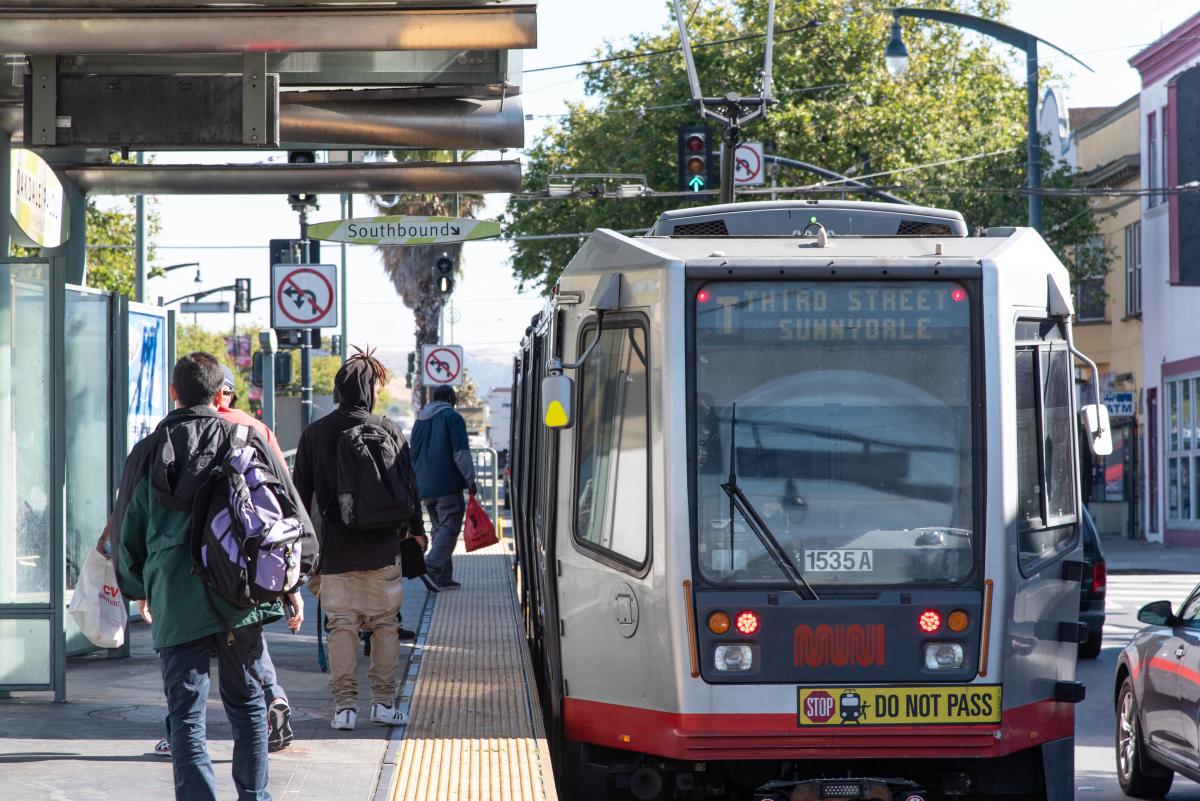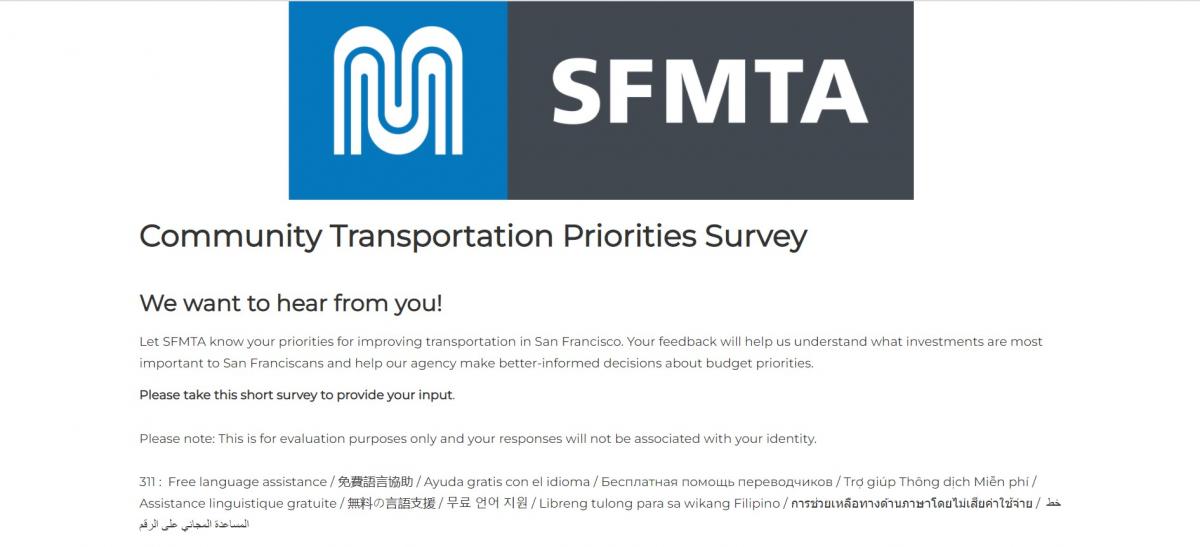By Andrea Buffa

It’s budget season!
Every two years, the SFMTA develops a consolidated budget to guide the agency’s decisions about where to focus our funding to best meet the transportation needs of all San Franciscans. We’re developing a budget that’s designed to support San Francisco’s economic recovery, increase transportation equity, protect the environment and keep the agency on sound financial footing.
We presented the base budget (projected revenues and expenditures for the next two years if we made no changes and continued our current policies) to our Board of Directors in early February to get their feedback and are now seeking input from the public. Your feedback will help us understand what to change in our base budget: which investments are most important to San Franciscans and which new revenue sources you think we should pursue. We’re considering both fare increases and decreases as well as changes to parking fees.
The City Charter requires us to submit the final budget to the Mayor’s Office by May 1. The Mayor then sends it to the Board of Supervisors on June 1 for a final vote.
How to provide your input on the SFMTA FY 2023 to FY 2024 budget
Online Survey: We invite you to give us feedback about your transportation priorities by filling out this short survey. It’s available in English, Spanish, Chinese and Filipino. We’ve included an open-ended question so you can let us know if there’s a specific transportation priority you want to let us know about.

Online Listening Sessions: We’re hosting two listening sessions that will include a short budget presentation and time to hear your questions and suggestions. You can request simultaneous interpretation in any language for our budget listening sessions by calling 415.646.2109 at least 48 hours prior.
-
February 28, 2022, 1:00 p.m. - 2:30 p.m.
English call-in number: (833) 362 1164
Spanish translation call-in number: (833) 408 1988
Chinese translation call-in number:
Click here to log in -
March 3, 2022, 5:00 p.m. - 6:30 p.m.
Get login information at SFMTA Budget Planning - Fiscal Years 2023 & 2024
Online Town Hall: At our online Town Hall meeting, we’ll share the feedback we heard from the survey and online listening sessions.
March 10, 2022, 6:00 p.m. - 7:00 p.m.
Get login information at SFMTA Budget Planning - Fiscal Years 2023 & 2024
After gathering feedback from the public, our directors and our staff, we’ll revise the budget and present it for additional review at two SFMTA Board of Directors meetings:
SFMTA Board of Directors Budget Meetings:
-
March 15, 2022, 1:00 p.m.
-
April 5, 2022, 1:00 p.m.
Budget Background
If you’ve been tuning in to our Board of Directors meetings during the two years, you’ll know that the SFMTA’s revenue was severely reduced by the COVID-19 pandemic. COVID devastated our transit fare and parking revenues, which are two of our three biggest revenue sources. Even now, our transit revenues are about 75% lower than pre-pandemic levels and parking revenues are 20% lower.
The recovery of our transit fare and parking revenue depends on the pace of San Francisco’s economic recovery, which is still uncertain. Data from the Controller’s Office shows that the city’s economy and downtown are recovering more slowly than comparable metropolitan areas.
This compounded the financial problems our agency already had. Over the last 20 years, the demands on San Francisco’s transportation system have grown and revenues haven’t kept up. Our agency has what’s called a “structural deficit” -- the amount of money it takes to operate our system costs more than the revenues we take in.
We got through the last two years because we fought for and won San Francisco’s fair share of federal pandemic relief funding and then we were prudent about using that funding to restore service.
Recently, our short-term budget outlook has somewhat improved because some of the external revenue sources we rely on did better than expected. We’re receiving more money than we thought we would from the San Francisco General Fund and need to spend less on our pension costs. Still, according to the Controller’s Office, the SFMTA will face a structural deficit of approximately $20 - $50 million every year beginning in FY 2024-25.
This background informs the FY 2023 to FY 2024 base budget that we’re asking for feedback on. It tries to balance the need for us to restore and expand services with the need to maintain the agency’s long-term economic stability.
Click below to view the budget website in:
Published March 02, 2022 at 12:33AM
https://ift.tt/BameGSR
Comments
Post a Comment